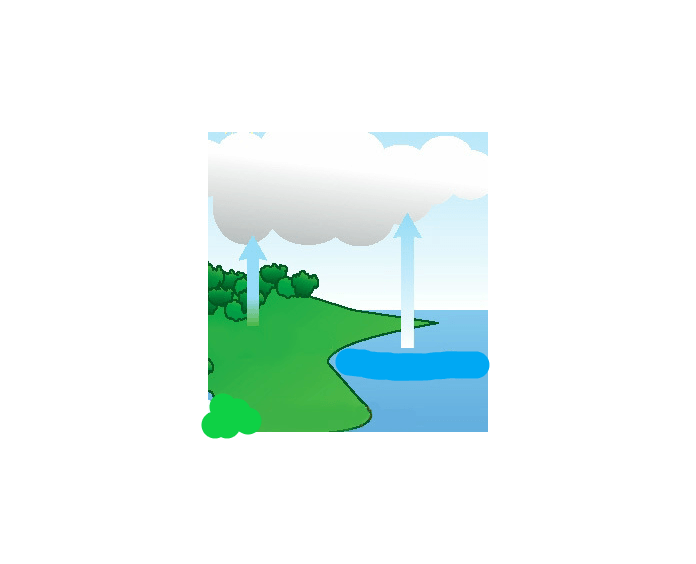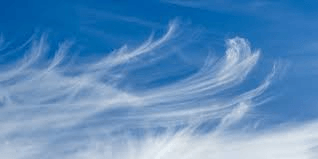Rain, hail, sleet, snow are all types of __________.
precipitation
This weather tool shows which was the wind is blowing.
Wind vane
These clouds are typically low and flat and cover the entire sky.
stratus

Cold Front
how hot or cold something is
temperature
The ________ heats Earth's water which causes evaporation.
Sun
This weather tool collects and measures the amount of rain that has fallen.
Rain Gauge
mid-level clouds that look like cotton balls.
cumulus

Warm front
the state of the atmosphere at a place and time as regards heat, dryness, sunshine, wind, rain, etc.
weather
gas to liquid
condensation
This weather tool gives meteorologists information about wind speed which helps them determine how quickly weather conditions might change.
anemometer

rainy

stationary front
the weather conditions prevailing in an area in general or over a long period.
climate
Both arrows represent ______________.

evaporation
This weather tool measures air pressure which can detect changes in weather conditions
barometer

Cirrus clouds typically mean ________ weather.
sunny
This front replaces warm air with cold air causing wind to change direction, air pressure changes, and severe thunderstorms.
cold front
Ms. Siegel's class made the following observations about the weather outside:
-it was windy/breezey
-stratus clouds
-air pressure was dropping
They predicted that later that afternoon they will have __________.
Thunderstorms
Daniel noticed that his water glass looked like it was "sweating" and made puddles of water next to the glass. He thought that there must be something wrong with his glass, but his friend Marco explained that it was actually just a result of ___________.
condensation
This weather tool measures the amount of humidity in the air.
hydrometer
This cloud usually brings heavy rain and thunder.

Cumulonimbus
This front occurs when a warm air mass is pushing into a colder air mass. Generally this from moves from southwest to northeast.
Warm Front
These clouds are also called "mackerels" because the clouds look like the scales on a mackerel fish.
cirrocumulus